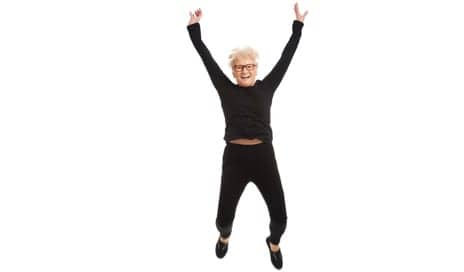Therapeutic jumping for knee osteoarthritis may seem like an oxymoron. Nonetheless, MRI exams of subjects who regularly experienced knee pain caused by osteoarthritis reportedly indicated that high-impact jumping improved the quality of patellar cartilage and physical function during the course of a research study.
The study enrolled 80 postmenopausal women aged 50 years to 65 years, and all indicated they experienced knee pain most days of the month, according to a report by ScienceDaily. The study subjects’ claims of mild knee osteoarthritis were confirmed by radiographs prior to the study’s launch.
Research was completed by a team based at the Central Finland Central Hospital and the Department of Medical Technology, Institute of Biomedicine in University of Oulu in Finland. Throughout the 12-month study, a control group continued normal physical activity, while another group performed progressive, high-impact exercise three times weekly. ScienceDaily reports that the effects of exercise on patellar cartilage texture and the amount of liquid were measured by T2 relaxation time at MRI imaging.
Jarmo Koli, Department of Health Sciences, doctoral student and OMT-physiotherapist, explains that the breaking of the collagen network and increased free water in the articular cartilage is considered to represent the onset of the degenerative process of osteoarthritis.
“If those cartilage-breaking changes can be hindered, stopped, or even improved the quality of the cartilage via appropriate physical activity, it might slow down the disease progression,” Koli says.
According to the ScienceDaily report, the regimen of jumping and exercise that included a variety of rapid movements actually improved the quality of patellar cartilage. The report also states that these two exercise modalities are best for improving bone strength. Though these exercises previously were thought to harm the integrity of articular cartilage, the study authors content the issue has never been settled scientifically, according to ScienceDaily.
The authors conclude: “The clinical significance of this study is, postmenopausal women in mind, that despite of mild knee osteoarthritis, a person is allowed and even encouraged to progressively implement high-impact loading exercises to maintain and improve her health and functional ability.”
The study is published in the journal Medicine and Science in Sports and Exercise.
[Source: ScienceDaily]






